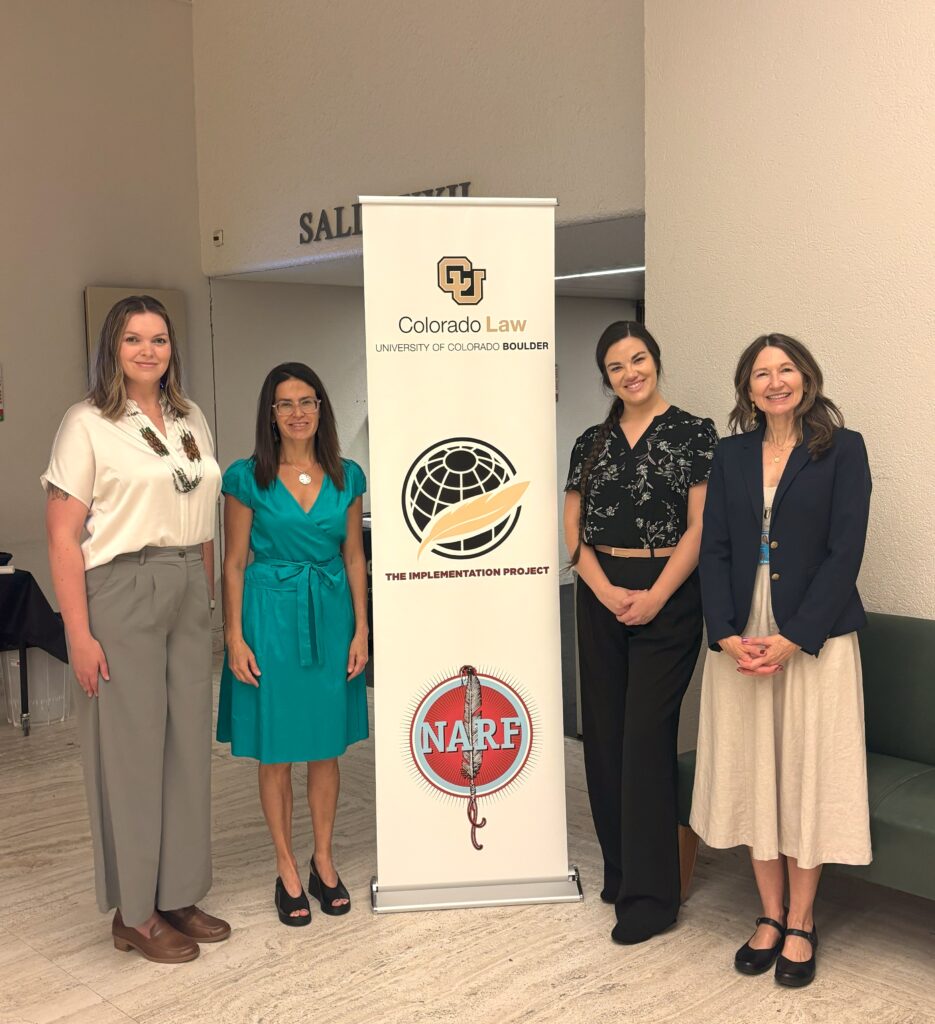The Implementation Project (TIP) attended the 18th Session of the United Nations Expert Mechanism on the Rights of Indigenous Peoples (EMRIP) from July 14 to 18, 2025. EMRIP is mandated to address Indigenous Peoples’ rights through country engagements, as well as studies and recommendations to the Human Rights Council (HRC). The Annual Session is an opportunity for stakeholders to provide input on EMRIP’s activities and advice. During the 18th Session, TIP worked with representatives from Indigenous Peoples and States regarding the protection of Indigenous data sovereignty, traditional knowledge, and language rights, while promoting a new vision for indigenized economic systems and supporting the UN Special Rapporteur on the Rights of Indigenous Peoples Dr. Albert K. Barume. To view recordings of session meetings, visit UNTV here. Several short clips of TIP interventions are also highlighted below.
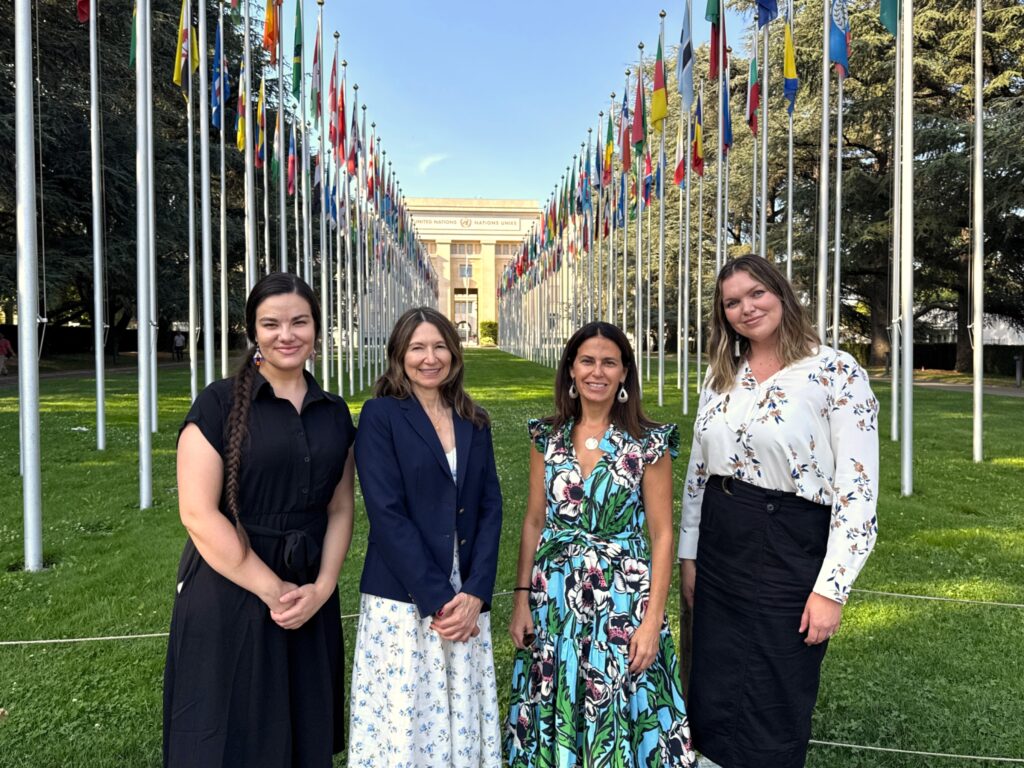
Data Sovereignty
TIP welcomed EMRIP’s draft Study on the rights of Indigenous Peoples to data, including data collection and disaggregation. Guided by Indigenous rights to access and control data as affirmed in the UN Declaration on the Rights of Indigenous Peoples, the study advises that States collaborate with Indigenous Peoples to improve collection, analysis, and management of their data, with their free, prior, and informed consent. The study also references the 2024 World Intellectual Property Organization (WIPO) Treaty on Intellectual Property, Genetic Resources and Associated Traditional Knowledge (GRATK Treaty), as a “significant milestone in international law” and a positive step in preventing the misappropriation of genetic resources and traditional knowledge. As the study notes, the GRATK Treaty acknowledges the Declaration and contains an article on establishment of traditional knowledge databases.
To enhance and strengthen the Study, TIP delivered a statement recommending that EMRIP call for the repatriation of data previously taken from Indigenous Peoples, and that access to these forms of data while still held in non-Indigenous collections be ensured. TIP also recommended that EMRIP affirmatively call on States to become parties to the GRATK Treaty and create, in consultation with Indigenous Peoples, appropriate database safeguards. TIP Co-Director Professor Kristen Carpenter further elaborated on these points as a panelist at the side event: “Indigenous Peoples’ leadership in data collection and disaggregation.”
Traditional Economies
Another important agenda item for the session was discussion of EMRIP’s draft Report on Efforts to implement the United Nations Declaration on the Rights of Indigenous Peoples: the rights of Indigenous Peoples to their traditional economies. The report highlights the role of traditional economies in food security, biodiversity conservation, and climate resilience and recommends that States strengthen traditional economies by first upholding their obligations to respect Indigenous rights to self-determination under the Declaration.
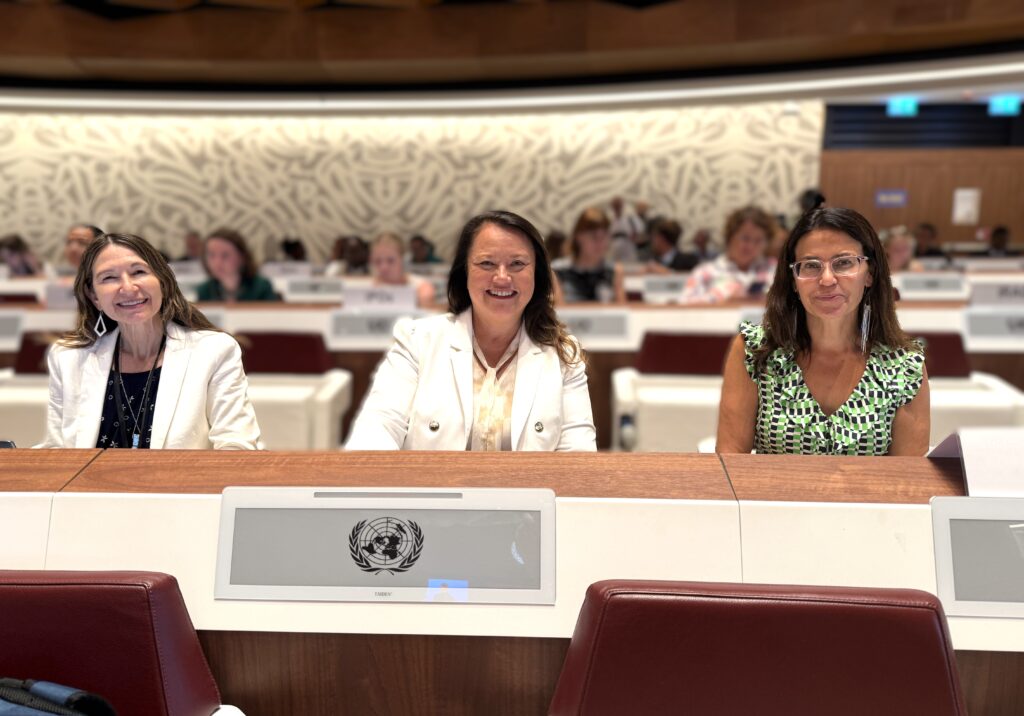
Under this agenda item, Fawn Sharp, former President of the Quinault Indian Nation and the National Congress of American Indians (NCAI), delivered a statement calling for enhanced Indigenous leadership in transforming global economies. The Native American Rights Fund and NCAI submitted a statement advocating for strengthening traditional economies through broad State ratification of the GRATK Treaty and successful conclusion to the ongoing negotiations on legal protections for traditional knowledge and cultural expressions at WIPO, noting the linkage between protection of Indigenous Peoples’ knowledge systems and the ability to sustain traditional economies.
Together with co-sponsors the Australian Government, Indigenous Movement for Peace Advancement and Conflict Transformation (IMPACT), and Center for Support of Indigenous Peoples and Civic Diplomacy “Young Karelia”, TIP held a side event entitled, “From Traditional Economies to Global Transformation: Indigenous Leadership in Rebuilding Economic Systems,” allowing for detailed exchange among representatives from North America, Africa, Russia and the Transcaucuses, and the Pacific.
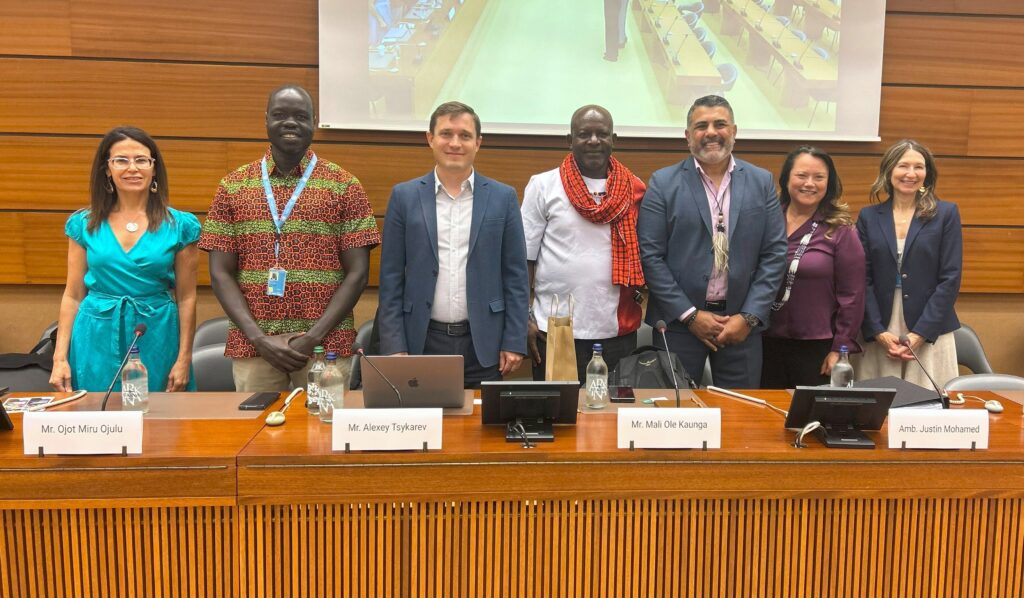
Ms. Sharp kicked off the side event, introducing an inspired vision for building Indigenous-led economic systems that meet the current challenges of biodiversity loss, climate change, and sociopolitical insecurity. Joining Ms. Sharp on the panel were Ambassador Justin Mohamed, Australia’s Ambassador for First Nations People, Mr. Mali Ole Kaunga, Founder and Director of IMPACT, Mr. Alexey Tsykarev, Member of the Cali Fund Steering Committee, and Dr. Ojot Miru Ojulu, EMRIP Vice-Chair.
Ambassador Mohamed celebrated the adoption of the GRATK Treaty and expressed optimism for Australia’s joining and implementing the Treaty in collaboration with First Nations to strengthen traditional economies. Mr. Kaunga shared his experience with Maasai leaders who treat water as sacred and deep-rooted in a sense of belonging, rather than a privatized resource. Mr. Tsykarev highlighted his work with the Convention on Biological Diversity’s Cali Fund to provide direct funding to Indigenous Peoples for protecting biodiversity and building their economies. Dr. Ojulu discussed findings and recommendations in the EMRIP draft report, explaining that States should respect rights related to self-determination in order to support traditional economies.
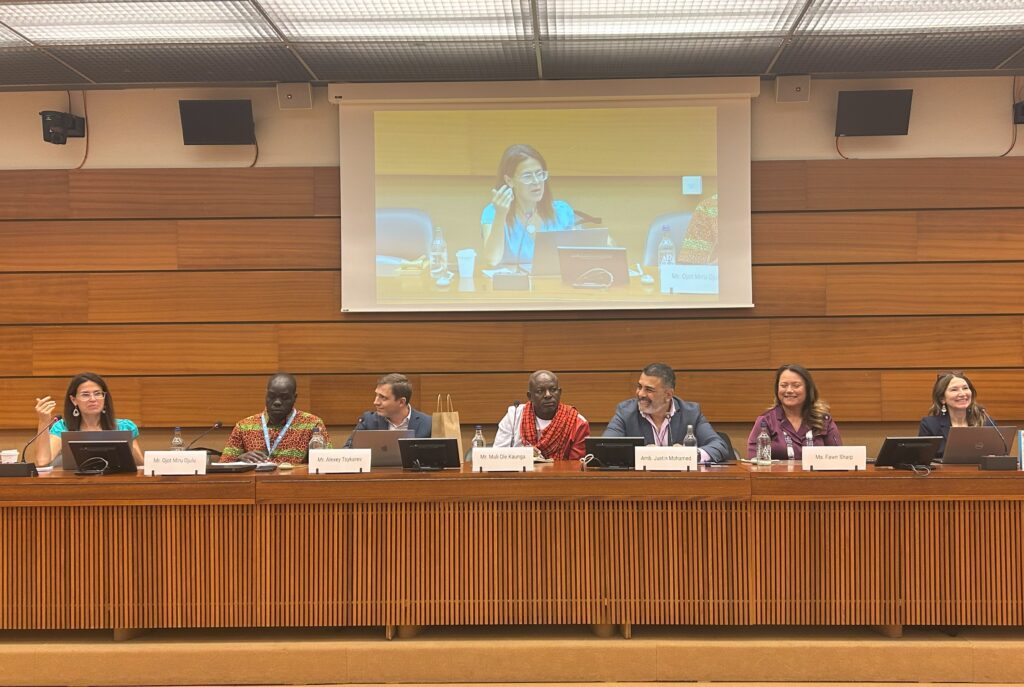
Indigenous Languages
In another important agenda item, EMRIP reviewed progress, challenges, and implementation strategies concerning the Global Action Plan of the International Decade of Indigenous Languages 2022-2032 (IDIL). EMRIP noted the low number of action plans adopted and implemented at the national and local levels. The UNESCO Director for Digital Inclusion and Empowerment encouraged Indigenous Peoples to create their own Institutional Action Plans with assistance from UNESCO as well as digitizing and artificial intelligence technology.
TIP delivered an intervention acknowledging the U.S. 10-Year National Plan on Native Language Revitalization (2024), requesting that EMRIP propose an HRC recommendation to all States that they fulfill commitments made during the IDIL, even when national politics may change, in light of the urgent, non-partisan issue of revitalizing Indigenous Peoples’ languages. TIP also suggested that EMRIP and the HRC consider the opportunities and challenges associated with the use of artificial intelligence in making interpretation available for Indigenous Peoples’ languages.
Enhanced Participation, Future Work, and More
In other developments at the session, EMRIP reported on progress toward securing the enhanced participation of Indigenous Peoples at the United Nations, noting the 2024 intersessional meetings held with the HRC on this topic. In order to encourage more robust, ongoing Indigenous Peoples’ participation at the HRC, EMRIP continued dialogues with the HRC to create a new, distinct accreditation status for Indigenous Peoples, not subject to State recognition. Several participants welcomed these efforts and called on EMRIP and the HRC to finalize an agreement on the new accreditation process while State delegates shared concerns over UN system-wide uniformity.
Concerning future work, EMRIP announced plans to develop a thematic study on the rights of Indigenous Peoples in conflict and post-conflict situations. EMRIP will release a call for input in October 2025. TIP called on EMRIP to engage in future work to support the ongoing diplomacy at WIPO by preparing a study highlighting practical examples of rights-based approaches to the protection of Indigenous Peoples’ knowledge and cultural expressions.
Concerning the recent reduction in its budget, EMRIP, as well as participants, expressed concerns over decreased HRC funding and the constraints this poses. EMRIP announced it will not undertake its country engagement in Brazil. However, EMRIP plans to announce alternative modes of engagement and participation with States and intergovernmental organizations, in an attempt to continue its work as effectively as possible.
TIP was represented at EMRIP by Co-Directors Kristen Carpenter and Sue Noe, with assistance from Danielle Pourier and Hannah Ahders. Associate Professor of Clinical Law Christina Stanton and UN Legal Advisor Emiliano Salazar joined TIP in support of the Special Rapporteur. EMRIP’s recommendations to the Human Rights Council will be available on EMRIP’s website once published.

